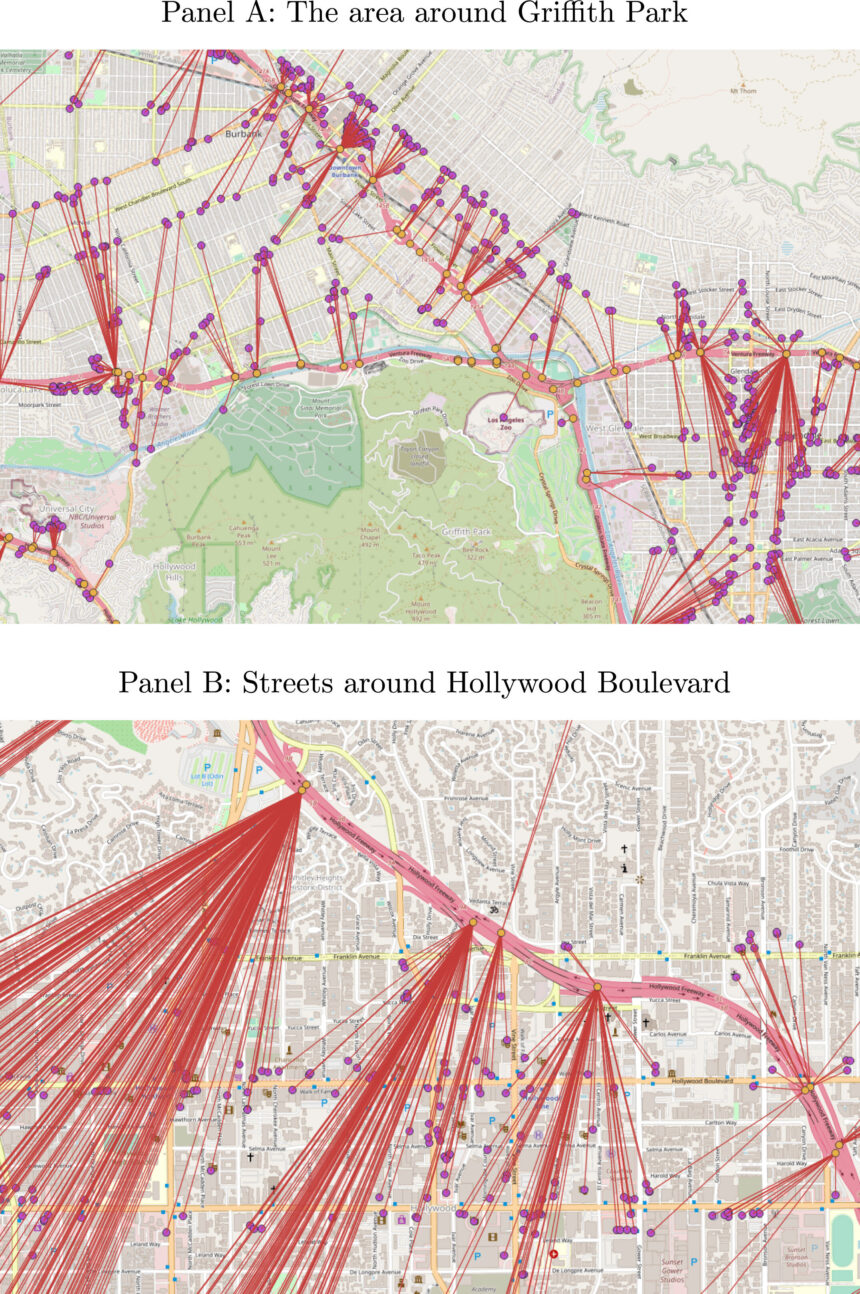Traffic delays have long been a source of frustration for drivers, but a new study from the University of Illinois Urbana-Champaign sheds light on an unexpected consequence of road congestion: unhealthy eating habits. The research, published in the Journal of Urban Economics, reveals a significant link between traffic delays and an increase in visits to fast food restaurants.
Lead researcher Becca Taylor, an assistant professor in the Department of Agricultural and Consumer Economics at Illinois, explains that even small unexpected traffic delays can lead to a 1% increase in fast food visits. In a place like Los Angeles County, this seemingly modest increase translates to a staggering 1.2 million more fast food visits per year. The study highlights the potential impact of traffic congestion on food choices and emphasizes the need for infrastructure reforms to mitigate these effects.
The research team had access to detailed data on daily highway traffic patterns in Los Angeles, as well as information on the number of cell phone users entering fast food restaurants over a two-year period. By analyzing this data, the researchers were able to establish a causal link between traffic delays and fast food visits. Interestingly, the study found that even small delays of just 30 seconds per mile could lead to a spike in fast food consumption.
Taylor explains, “It might not be intuitive to imagine what a 30-second delay per mile feels like. I think of it as the difference between 10 a.m. traffic and 5 p.m. traffic.” The study also revealed that traffic delays during evening rush hour were particularly likely to result in more fast food visits, as drivers faced the choice between cooking at home, stopping at the grocery store, or opting for fast food.
The implications of this research extend beyond Los Angeles, with the researchers suggesting that similar patterns may exist in other major cities with high levels of traffic and fast food restaurants. The study underscores the importance of addressing time constraints, such as traffic congestion, in order to promote healthier eating habits. Taylor and her co-authors advocate for infrastructure improvements, expanded public transportation options, and increased work-from-home opportunities as potential solutions to combat the link between traffic delays and unhealthy food choices.
In conclusion, the study on the relationship between traffic delays and fast food consumption offers valuable insights into the impact of urban infrastructure on public health. By understanding how traffic congestion influences food choices, policymakers can work towards creating healthier environments for residents in cities across the country and around the globe.
For more information on this research, you can refer to the study published in the Journal of Urban Economics by Panka Bencsik et al, titled “Slow traffic, fast food: The effects of time lost on food store choice.” The DOI for the study is 10.1016/j.jue.2025.103737. This study was conducted in collaboration with researchers from Vanderbilt University and the University of Pittsburgh.
This content is provided by the University of Illinois at Urbana-Champaign and can be accessed via their official website for further details.








